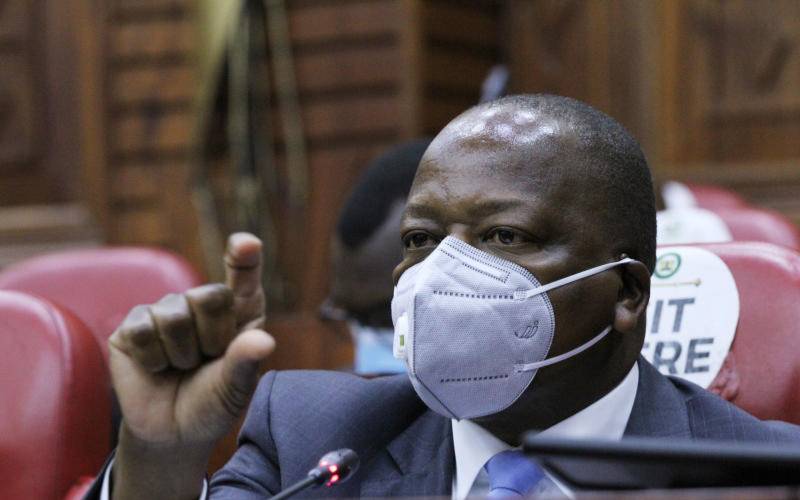×
The Standard e-Paper
Fearless, Trusted News

Health CS Mutahi Kagwe on Wednesday expressed his reservations over the experimental Covid-19 vaccine developed by Pfizer Inc and BioNTech SE saying he is yet to understand how it works.
While giving a status report on the fight against the pandemic to the Senate, Kagwe said he cannot fathom how one will be injected with a ‘disease’ to keep the virus at bay.